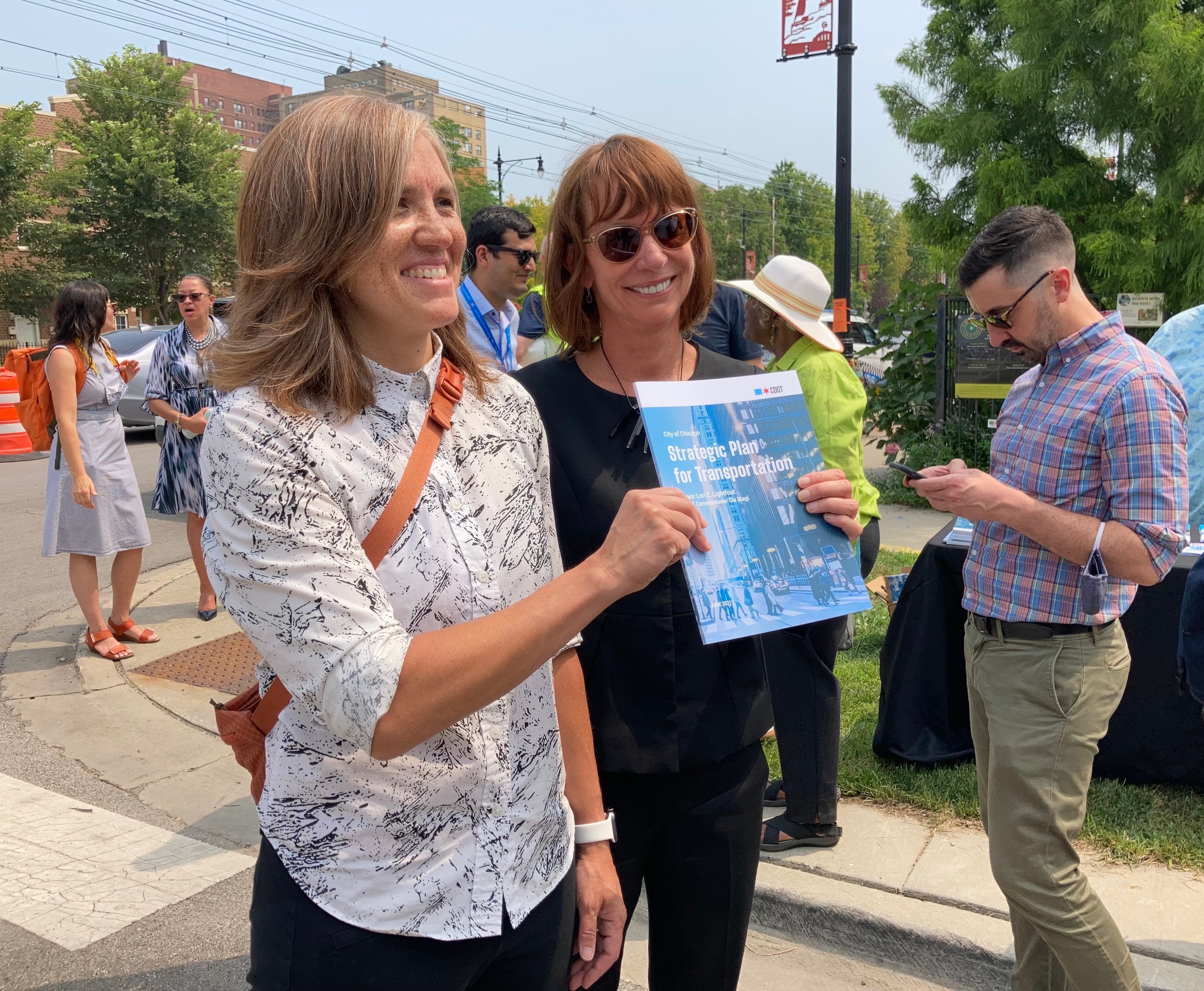After Chicago Department of Transportation Commissioner Gias Biagi announced her resignation yesterday, advocates shared mixed feelings about her tenure. Some argued that she took office with forward-thinking ideas for improving Chicago walking, biking, and transit. However, they said, Biagi's goals may have been ultimately undermined by her primary boss, former mayor Lori "We Are A Car City" Lightfoot.
The commissioner also also faced the challenges of the COVID-19 pandemic. On the other hand, some said, Chicago did not use this time of lower car traffic to greatly expand its bus-only lane and protected bikeway networks, unlike many other large cities.
Biagi's departure, effective on Friday, August 11, is big news for Chicago sustainable transportation advocates, but not a major surprise. It's the norm for our city's mayors to replace their department heads shortly after taking office, and it's been roughly 2.5 months since Mayor Brandon Johnson was inaugurated. (CTA President Dorval Carter is an obvious exception to this rule, since he's served under ex-mayors Rahm Emanuel and Lightfoot, and is still in control of the agency, even though many politicians and transit activists say he shouldn't be.)
Moreover, Johnson's transition team's transportation committee, including prominent walk/bike/transit advocates, has indicated that the city's mobility policy is becoming much more progressive. Notably, the committee is calling for a 20 mph speed limit on arterials and 10 mph on side streets, plus a citywide protected bike lane grid, ideas that seemed like pipe dreams under the Lightfoot administration. So it makes sense that the CDOT commissioner tasked with making these things happen will be someone new.
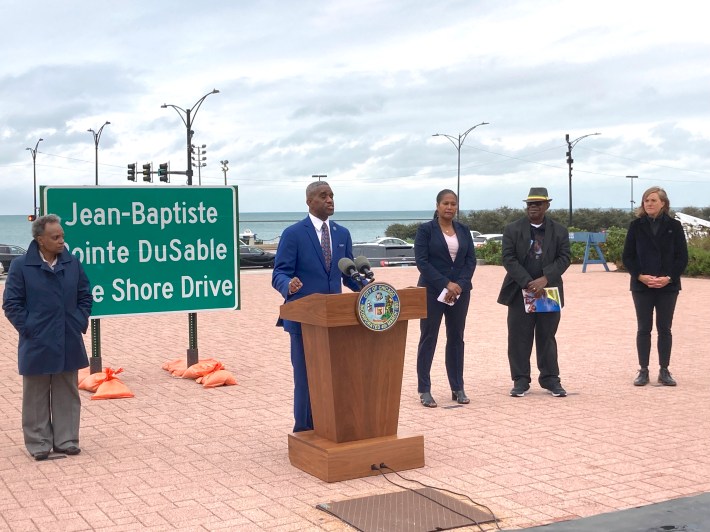
The CDOT press release about Biagi hitting the road notes that she was appointed in December 2019 and argues that she "led the department during a transformative period, delivering hundreds of innovative transportation projects citywide" and helped make the department's daily operations more equitable. I'll provide more POVs on that assessment in a bit.
“As commissioner of the Chicago Department of Transportation, Gia Biagi has been instrumental in implementing transportation systems and critical public infrastructure that improves neighborhoods, connects residents, and promotes safe and sustainable mobility,” said Mayor Johnson in a complimentary statement.
“It’s been an honor to lead an agency committed to creating safer access to opportunities for all Chicagoans, whether they walk, bike, drive or take transit,” Biagi stated.
The release included a long list of Biagi's supposed accomplishments. Rather than discuss these topics in depth now, I'll just provide bullet points with links to previous Streetsblog coverage or other info sources. Read the full CDOT writeup here.
• "Created Chicago’s Strategic Plan for Transportation"
• "Developed the Mobility and Economic Hardship Index"
• "Expanded the bike network by more than 100 miles"
• "Expanded Divvy service to every Chicago neighborhood"
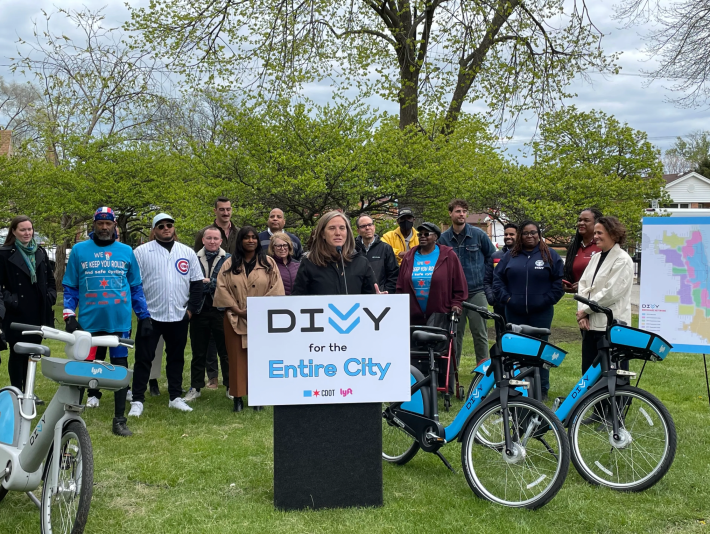
• "Produced the Chicago Cycling Strategy"
• "Completed pedestrian safety projects at more than 1,000 intersections"
• "Introduced Chicago’s Smart Streets Pilots"
• "Advanced 30 miles of new streetscapes"
• "Created a permanent outdoor dining program"
• "Planted more than 15,000 trees"
• "Led the multi-year $3 billion Chicago Works Capital Improvement Plan"
• "Completed the Chicago Smart Lighting Streetlight Modernization Program"
• "Completed several major pedestrian and bicycle bridge projects"
• "Implemented Jackson Park Mobility Improvements to support the Obama Presidential Center"
• "Broke ground on the new Damen Green Line CTA station"
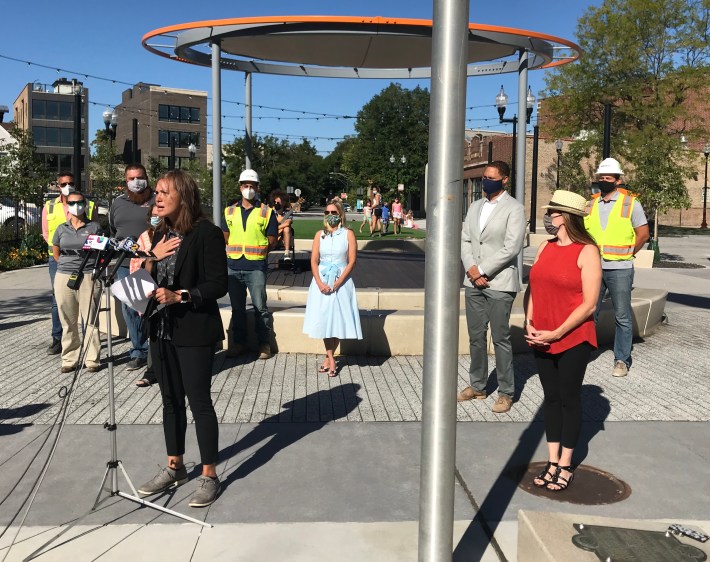
So what did sustainable transportation advocates have to say about the notion that the Lightfoot/Biagi era was "transformative" for Chicago walking, biking, and transit?
"I had high hopes [for Biagi] and she talked the good talk, but ultimately progress was slow [with] lots of unforced errors," tweeted Streetsblog freelancer Steven Lucy. "How much of that was her and how much was her boss (Lightfoot) and how much was it institutional inertia anyone would have struggled to overcome – I don't know."
"CDOT under Biagi did very little to implement bus priority initiatives unless CTA advocated for them," a Streetsblog reader argued on Twitter. "Not acceptable for me when you own most of the right of way for Chicago's most-used transit mode."
"The Divvy expansion cuts both ways," posted a reader. "Some neighborhoods only have e-bikes, and with rate increases they aren't very affordable. Expanding the blue bikes would be financially accessible to more people... And a vision for 150 miles of bikeways in a city the size of Chicago is not very much of a vision, TBH."
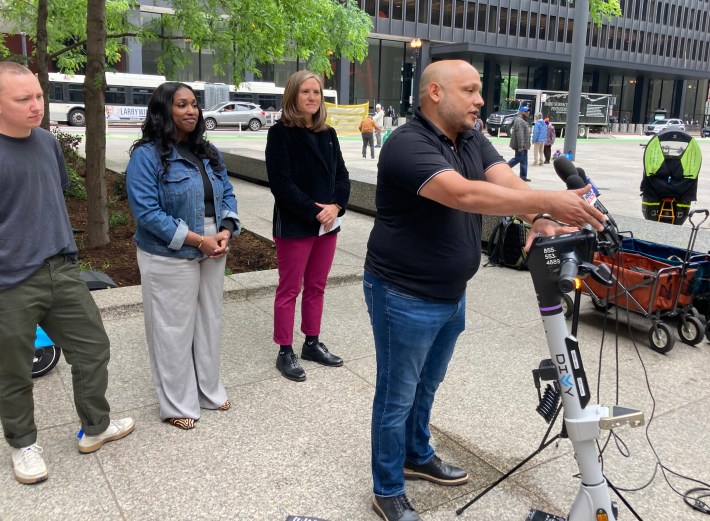
"It’s easy to say you grew the mileage of protected bike lanes by 60 percent when the number you started with was super low," tweeted another.
"Hmm, no mention of Vision Zero. I wonder why?" posted reader Jeremy Glover. "In fairness, it was a tough time to be a department commissioner. But the sluggish response to the COVID-induced spike in traffic violence is a pretty big black mark in my opinion."
"I'd say mostly a list of good projects, those are all things we generally want and like," tweeted a reader. "I'd also point out most of these represent incremental change, fine by me, but not really what the shouty 'change now' folks in our community are looking for."
"I'll take incremental change, but it needs to be everywhere and all the time," responded another person. "Our city is filled with [infrastructure] that WILL produce traffic violence as a pretty much guaranteed output of their design. Fixing it is often incremental, but the issue must be articulated."
So it appears many Streetsblog readers don't feel Biagi was bad at her job, but wish she'd been able to take bolder, citywide action to improve Chicago walking, transit, and biking safety and mobility. Hopefully Mayor Johnson will give the next CDOT chief more freedom to make such changes.

Did you appreciate this post? Please consider making a tax-deductible donation.
